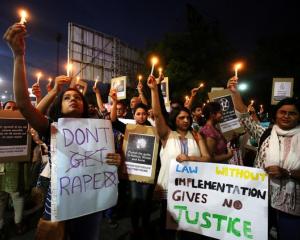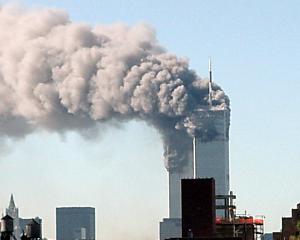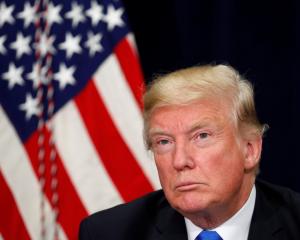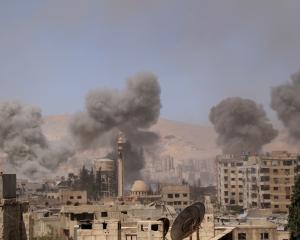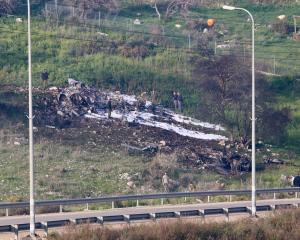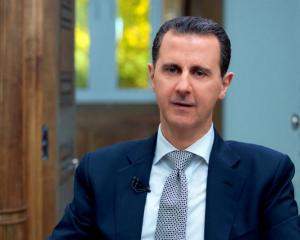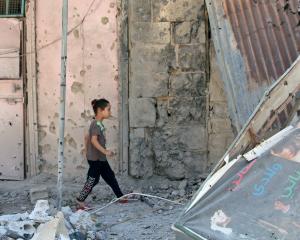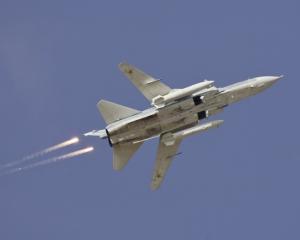But the Security Council differed greatly over what those consequences should be with the United States, Britain, Germany and France insisting that Syria should be threatened with sanctions, while Russia said that should be a "last resort."
The deeply divided 15-member council must decide the future of a UN observer mission in Syria, known as UNSMIS, before July 20 when its 90-day mandate expires. It initially approved 300 unarmed military observers to monitor an April 12 ceasefire, which failed to take hold, as part of Annan's peace plan.
"He (Annan) called for the Security Council members to put aside their national interests and to put joint and sustained pressure on both parties with clear consequences for non-compliance," Britain's UN Ambassador Mark Lyall Grant said.
Britain plans to circulate among Security Council members later on Wednesday a draft resolution to extend UNSMIS and place Annan's six-point peace plan and guidelines to create a transitional government in Syria under Chapter 7 of the UN Charter, which allows the council to authorize actions ranging from diplomatic and economic sanctions to military intervention.
"Our view is that this council needs to put that kind of plan under Chapter 7, make it clear that it is binding," said U.S. Ambassador to the United Nations Susan Rice, adding that a rollover of the current mandate would be "insufficient."
Lyall Grant said the draft resolution in particular threatens the Syrian government with sanctions if it does not stop using heavy weapons within a specified time, which was a key aspect of Annan's peace plan.
RUSSIA SAYS SANCTIONS "LAST RESORT"
The British text, drafted in consultation with the United States, France and Germany, counters a draft resolution circulated by Russia on Tuesday, which would extend UNSMIS for three months but makes no threat of sanctions.
"Kofi Annan did not ask us to apply sanctions," Russia's Deputy UN Ambassador Alexander Pankin told reporters after Annan's briefing. "He just said that the Security Council should ... send a signal that its suggested recommendations and actions have to be implemented or there will be consequences."
"But consequences does not mean necessarily actions under a certain chapter or certain article," he said. "Chapter 7 is a last resort, Chapter 7 is not a very efficient mechanism."
Russia and China have previously vetoed UN resolutions designed to pressure Assad.
"We will support a rollover (of UNSMIS)," China's UN Ambassador Li Baodong told reporters before Annan's briefing.
One thing council members appeared to agree on was accepting UN chief Ban Ki-moon's recommendation for a shift in the emphasis of UNSMIS' work from military observers - who suspended most of their monitoring activities on June 16 because of increased risk amid rising violence - to the civilian staff focusing on a political solution and issues like human rights.
While the mandate for 300 unarmed military observers is likely to be unchanged, far fewer will be required for the suggested change in focus of the mission.
Assad's forces have killed more than 15,000 people since a crackdown on pro-democracy protesters began in March 2011, some Western leaders say. Damascus says rebels have killed several thousand of its security forces.
Diplomats said Annan did not go into great detail about his lightning diplomatic shuttle this week to Damascus, Tehran and Baghdad - three capitals forming a Shi'ite Muslim axis of power in the Middle East.
Annan plunged into a tussle between the major powers on Tuesday, insisting that Iran, which strongly backs Assad and is regarded as an adversary of the West and Gulf Arabs, had a role to play in the drive to relaunch stalled peace efforts and begin talks towards a political transition.



